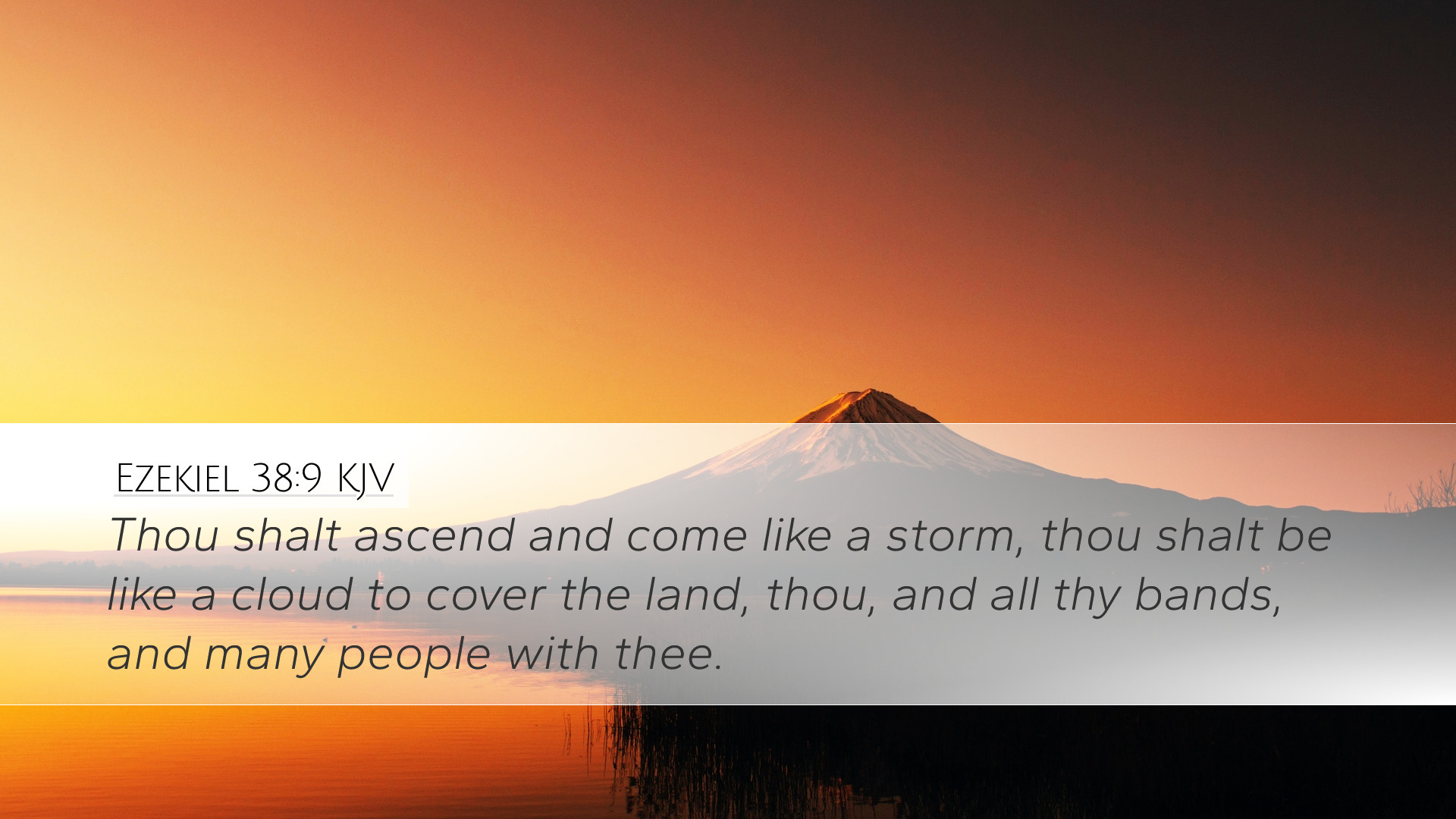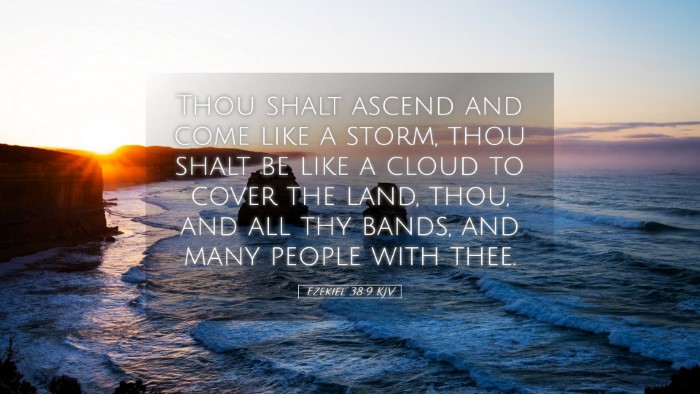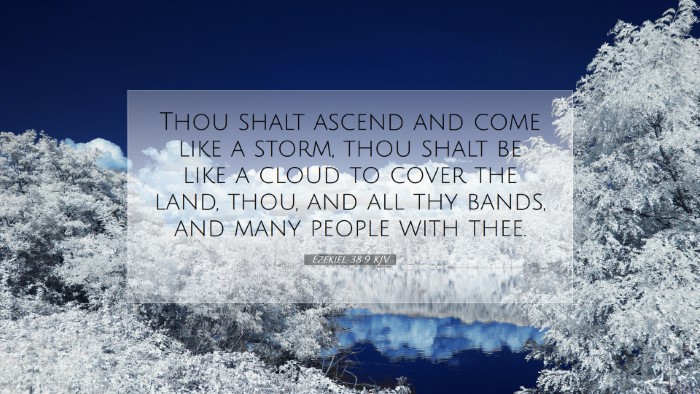Bible Commentary on Ezekiel 38:9
Ezekiel 38:9 (ESV): "You will come up against my people Israel, like a cloud covering the land. In the latter days, I will bring you against my land, that the nations may know me when through you, O Gog, I vindicate my holiness before their eyes."
Contextual Overview
The Book of Ezekiel is a significant prophetic text that addresses the impending judgement upon Israel, the eventual restoration of the nation, and the theme of divine sovereignty. In chapter 38, Ezekiel introduces a prophecy regarding Gog of Magog, a figure representing hostile nations that will attack Israel. This chapter is often interpreted eschatologically, framing Gog’s invasion as a significant event in the last days.
Commentary Insights
-
Matthew Henry:
Henry describes the invasion as a dramatic illustration of God's sovereignty. He emphasizes that the resurgence of Gog represents not merely a physical threat but also the spiritual confrontation of nations against God's chosen people. The imagery of a cloud suggests overwhelming force and suddenness. Henry notes that God uses even the adversarial forces to demonstrate His glory and holiness.
-
Albert Barnes:
Barnes provides an exposition on the phrase "like a cloud covering the land", which he interprets as an all-consuming military presence. He argues that this metaphorical language not only highlights the might of the invading force but foreshadows the eventual divine intervention of YHWH. The divine purpose is to show the nations God's holiness through His judgment and protection of Israel.
-
Adam Clarke:
Clarke puts into perspective the eschatological interpretation of Gog’s invasion, symbolizing the final struggles against God’s covenant people. He elaborates on the notion of God’s purpose in allowing such conflicts; it serves both to demonstrate His power and vindicate His holiness. Clarke suggests that the term "latter days" indicates a time that precedes the ultimate fulfillment of God's promises to Israel.
Theological Implications
This verse unfolds profound theological realities for both the Old Testament context and contemporary interpretations. The interplay between divine sovereignty and human agency becomes evident. While Gog embodies human rebellion, the assurance that God orchestrates events reinforces His supreme authority. Furthermore, the promise of vindication for God's holiness encourages believers to trust in God's righteous plan amidst chaos.
Applications for Pastors and Theologians
For pastors, Ezekiel 38:9 serves as a reminder to convey God's sovereignty in the face of adversity. The imagery of God bringing forth judgment against the nations provides a segway to discuss God’s ultimate control over history and events. It also offers opportunities to instruct congregations on the importance of holiness and the role of believers as representatives of divine truth in a world often hostile to faith.
Theologians researching eschatology can explore the implications of Gog’s invasion as a precursor to the ultimate resolution depicted in Revelation. This brings to mind the themes of collective human opposition to divine authority, and God's provision and protection over His people, ultimately culminating in His glorification and the establishment of His eternal kingdom.
Conclusion
Ezekiel 38:9 encapsulates a significant prophetic message of divine sovereignty, judgment, and holiness. Drawing from the works of established commentators, the insights clarify the text's implications for both its original audience and today's believers. As God's people navigate challenges, this verse affirms God's omnipotence in preserving His name and purpose among the nations.


